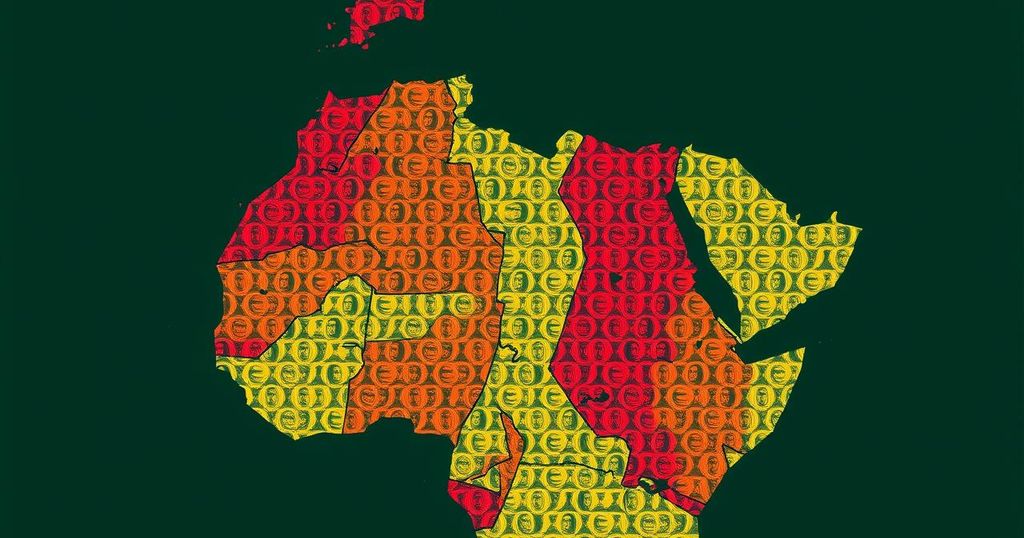Sh2.3 Billion Initiative Launched to Combat Conflict in East Africa

A new Sh2.3 billion program, ‘Brave for Peace,’ aims to enhance community resilience against violent extremism in Kenya, Somalia, and South Sudan over the next three years. Implemented by UNDP and funded by KOICA, it focuses on tackling economic hardships, political instability, and social grievances that fuel conflict. Key stakeholders emphasized the need for localized solutions to combat the security challenges these nations face due to extremist activities.
The conflict mitigation initiatives in Kenya, Somalia, and South Sudan have received a significant enhancement through the introduction of a Sh2.3 billion (approximately USD 18 million) program titled ‘Brave for Peace.’ This initiative, poised to operate over the next three years, aims to implement locally-driven solutions to confront underlying issues that contribute to violent extremism and conflict, such as economic hardship, political instability, and social marginalization. The United Nations Development Programme (UNDP) facilitates the program, supported by funding from the Korea International Cooperation Agency (KOICA). During its inauguration, Interior Principal Secretary Raymond Omollo highlighted the unique peace and security challenges faced by Kenya, notably the persistent threats of extremism, which were brought into sharp focus by tragic events like the Shakahola massacre. He emphasized that the motivations behind such violence transcend singular religious narratives, indicating a broader, more complex challenge. Additionally, Mr. Abdullahi Mohamed Nur, Director of the Tusban Centre in Somalia, reaffirmed that Al-Shabaab’s actions are not religiously motivated but are rather attempts to instigate division among communities. He pointed out that the group inflicts violence even within predominantly Muslim communities, making it evident that their aims are rooted in criminality rather than faith. The rise of violent extremism over the past decade has increasingly undermined development and threatened regional security. Mohamed Houmed, Deputy Director of IGAD’s Centre of Excellence for Preventing and Countering Violent Extremism, referred to concerning statistics indicating a surge in extremist incidents, particularly from groups like Al-Shabaab exploiting socio-economic grievances to recruit vulnerable populations, notably the youth. KOICA’s Deputy Director Ms. Songi Han stated that these extremist factions manipulate existing societal divisions to jeopardize the precarious socio-political relationships between governments and their citizens. The repercussions of violent extremism disproportionately affect children, women, and marginalized individuals, rendering this program essential in addressing these critical factors. South Sudan’s Under-Secretary for Peacebuilding, Pia Phillip Michael, noted that although the country has not yet encountered violent extremism, it faces challenges arising from climate-induced insecurity and local conflicts. He asserted that this initiative will help establish a holistic approach aimed at fostering sustainable peace across the region.
The initiative to bolster resilience against conflict and violent extremism in Kenya, Somalia, and South Sudan is urgent due to the escalating threats posed by extremist groups in the region. Economic conditions, social inequality, and political instability have created fertile ground for recruitment into these groups. Recognizing the intersection of these issues is essential for facilitating peace and preventing further conflict in these nations. Therefore, projects like ‘Brave for Peace’ aim to implement locally-informed strategies to address the root causes of violence and promote community cohesion.
The launch of the ‘Brave for Peace’ initiative represents a critical step towards fostering resilience against violent extremism and conflict in Kenya, Somalia, and South Sudan. Through targeted funding and local solutions, the program seeks to mitigate the factors contributing to instability in the region. As stakeholders work collaboratively, the comprehensive approach is poised to address both the immediate and underlying issues fueling extremism, aiming for sustainable peace and community integrity.
Original Source: eastleighvoice.co.ke








